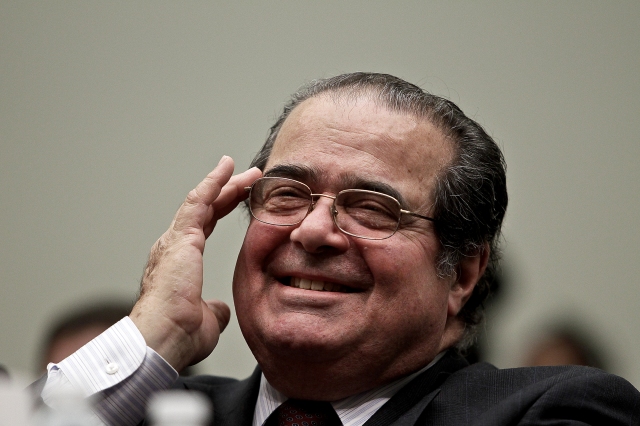Justice Antonin Scalia is typically the biting, witty voice of reason when the Supreme Court of the United States goes off the rails. Scalia says what so many of us wish we were clever enough to think. Here are a few gems from his dissenting opinion to the court’s King v. Burwell ruling. (That ruling, by the way, upheld Obamacare by interpreting the likely intent of lawmakers to extend subsidies to all eligible people purchasing insurance through exchanges, whether those exchanges were set up by the state or the federal government — even though the law specifies only individuals purchasing insurance through an exchange set up by a state were eligible for federal subsidies.)
“Under all the usual rules of interpretation, in short, the Government should lose this case. But normal rules of interpretation seem always to yield to the overriding principle of the present Court: The Affordable Care Act must be saved.”
“(Understatement, thy name is an opinion on the Affordable Care Act!)”
“(Impossible possibility, thy name is an opinion on the Affordable Care Act!)”
“Let us not forget, however, why context matters: It is a tool for understanding the terms of the law, not an excuse for rewriting them.”
“Who would ever have dreamt that ‘Exchange established by the State’ means ‘Exchange established by the State or the Federal Government’?”
“It is bad enough for a court to cross out ‘by the State’ once. But seven times?”
“(Contrivance, thy name is an opinion on the Affordable Care Act!)”
“The word “such” does not help the Court one whit.”
“The Court’s next bit of interpretive jiggery-pokery…”
“The Affordable Care Act spans 900 pages; it would be amazing if its provisions all lined up perfectly with each other. This Court ‘does not revise legislation . . . just because the text as written creates an apparent anomaly.’”
“Pure applesauce.”
“‘even the most formidable argument concern- ing the statute’s purposes could not overcome the clarity [of] the statute’s text.’”
“Only by concentrating on the law’s terms can a judge hope to uncover the scheme of the statute, rather than some other scheme that the judge thinks desirable.”
“No law pursues just one purpose at all costs, and no statu- tory scheme encompasses just one element. Most relevant here, the Affordable Care Act displays a congressional preference for state participation in the establishment of Exchanges: Each State gets the first opportunity to set up its Exchange…”
“This Court, however, has no free-floating power ‘to rescue Congress from its drafting errors’…It is entirely plausible that tax credits were restricted to state Exchanges deliberately—for example, in order to encourage States to establish their own Ex- changes. We therefore have no authority to dismiss the terms of the law as a drafting fumble.”
“The Court’s decision reflects the philosophy that judges should endure whatever interpretive distortions it takes in order to correct a supposed flaw in the statutory machinery. That philosophy ignores the American people’s deci- sion to give Congress ‘[a]ll legislative Powers’ enumerated in the Constitution. Art. I, §1. They made Congress, not this Court, responsible for both making laws and mending them. This Court holds only the judicial power—the power to pronounce the law as Congress has enacted it. We lack the prerogative to repair laws that do not work out in practice, just as the people lack the ability to throw us out of office if they dislike the solutions we concoct. We must always remember, therefore, that ‘[o]ur task is to apply the text, not to improve upon it.’”
“More importantly, the Court forgets that ours is a government of laws and not of men. That means we are governed by the terms of our laws, not by the unenacted will of our lawmakers.”
“The Court’s revision of the law authorizes the Internal Revenue Service to spend tens of billions of dollars every year in tax credits on federal Exchanges. It affects the price of insurance for mil- lions of Americans. It diminishes the participation of the States in the implementation of the Act. It vastly expands the reach of the Act’s individual mandate, whose scope depends in part on the availability of credits. What a parody today’s decision makes of Hamilton’s assurances to the people of New York: ‘The legislature not only commands the purse but prescribes the rules by which the duties and rights of every citizen are to be regulated. The judiciary, on the contrary, has no influence over . . . the purse; no direction . . . of the wealth of society, and can take no active resolution whatever. It may truly be said to have neither FORCE nor WILL but merely judgment.’”
“We should start calling this law SCOTUScare.”
“And the cases will publish forever the discouraging truth that the Supreme Court of the United States favors some laws over others, and is prepared to do whatever it takes to uphold and assist its favorites.”
“I dissent.”

